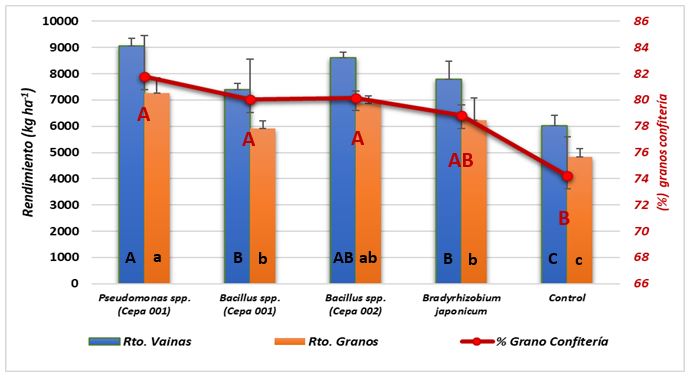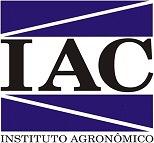Effects of Plant Growth Promoting Rhizobacterias on biomass production, yield and grain quality of peanut crop (Arachis hypogaea L.).
DOI:
https://doi.org/10.17648/sas.v1i2.58Keywords:
PGPR, GROWTH PROMOTION, BACILLUS, PSEUDOMONASAbstract
Córdoba province (Argentina) concentrates more than 85% of the total "‹"‹area sown with peanut crop (280-317 M. hectares per year). To achieve competitive yields, farmers use large amounts of chemical fertilizers and other synthetic supplies. To provide microorganisms into the plant rhizosphere, (PGPR) is a complementary agricultural management. PGPRs could induce plant growth directly or indirectly. Pseudomonas and Bacillus are the main genera included in this classification. First, native strains of gender Pseudomonas and Bacillus were isolated from soils previously sown with peanut crop and then they were characterized. The Granoleico cultivar was sown to evaluate the PGPR effects on biomass production (kg ha-1) and yield (kg ha-1). A trial was carried out in field conditions and plants grew without water limitations. The results showed the PGPR`s positive effects on growth. The strain 001 of Pseudomonas spp. increased the peanut yield 50% concerning the control (without microorganisms) and 82% of grains were classified as confectionery grain (+8% more than the control). The 002 and 001 strains of Bacillus spp. increased the peanut yield 42% and 20%, respectively, and 80% and 80.1% of the total grains were classified as confectionery grain. These results strengthen to PGPRs as a sustainable alternative to crop production but additional research is needed to assess the effects and stabilities of PGPR in contrasting environments.
Downloads

Downloads
Published
How to Cite
Issue
Section
License
Autores concordam com os seguintes termos:
a) Os autores mantêm os direitos autorais e concedem à revista o direito de primeira publicação, com o trabalho simultaneamente licenciado sob a LicençaAttribution-NonCommercial-ShareAlike 4.0 International, que permite o compartilhamento do trabalho com reconhecimento da autoria e publicação inicial na Revista SAS. A licença permite o uso, a distribuição e a reprodução irrestrita, em qualquer meio, desde que devidamente citada a fonte. Essa licença permite também que outros remixem, adaptem e criem a partir do seu trabalho para fins não comerciais, desde que atribuam a você o devido crédito e que licenciem as novas criações sob termos idênticos.
b) Não cabe aos autores compensação financeira a qualquer título, por artigos ou resenhas publicados na South American Sciences.
c) Os conceitos expressos nos artigos publicados na South American Sciences são de inteira responsabilidade de seus autores.








